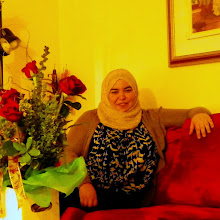The key to understand this topic is to realize that it has four branches:
- Egyptian-funded scholarships; or what we call "be3that" or in English "missions". These missions generally involve specific research areas.
- Governmental scholarships funded by foreign countries; they're typically a part of the cultural and academic collaboration between Egypt and other countries. They are called "mena7" or in English "Scholarships". Like missions, these scholarships involve specific research areas.
- Scholarships offered by foreign entities to promote higher education in developing countries. These scholarships don't necessarily involve specific research areas.
- Scholarships offered by academic institutions abroad and announced by a specific research center, academic department, or school, and always are offered for a specific subject area.
I'll explain the first two in this entry then the other two in the next entry.
1- Egyptian-Funded Scholarships
Missions are scholarships that are funded by the Egyptian government in order for researchers to acquire academic degrees in subjects for which the resources are not available locally. Of course, that's a "rosy" theory, because in real life these scholarships can be for any subject the researcher may choose. The Egyptian government specifies a budget for research, a part of this budget is allocated to missions. This part of budget is distributed to the Egyptian universities, and each university in turn distributes its part of the budget to the faculties. I don't know the exact mechanisms for this distribution or how the decision of the allocation is made (is it equal distribution? is it based on the number of TA staff? does it depend on the importance of the faculty in serving community?) But I heard that the process begins with the academic departments; they specify what they need in terms of missions, this goes all the way up until it reaches the university council, then the budget needed is determined and requested.
I don't think young researchers have any say in the matter, they can however pressure the faculty administration for more missions, especially if it's a faculty like ours with a young and promising specialty (i.e. computer science.)
What to do: Keep in contact with the department head and the faculty vice dean for postgraduate affairs. Constant nagging is a magical tool to get what you want from them. Also, you can go to the university's cultural affairs department "Alsho2oon Althaqafeyya" and ask employees about upcoming missions. This will keep you up to date maybe even before the news reach the faculty. Another useful thing is to constantly check the web site of the cultural affairs hosted by the Ministry of Higher Education, in addition to the local newspapers. Announcements for missions can always be found there when such missions are available.
2- Governmental Scholarships Funded by Foreign Countries
These scholarships are announced by academic institutions on their web sites. These institutions send mail announcements to the Egyptian universities and these announcements can always be found at the departments' secretaries. These scholarships have deadlines, meaning that if you have to apply before that deadline. There are three main problems with these scholarships:
- They sometimes come from countries that we don't fancy as research destinations (for example Malaysia or China or Eastern Europe.) That's not always the case though.
- The mail announcements from these institutions sometimes arrive just before their deadline due to poor postal service, this leaves the researcher with a narrow window of opportunity to successfully apply.
- Applying for these scholarships does not guarantee admission, because they're highly competitive. The institutions receive many applications and filter them based on academic merits and specialties.
What to do: Keep in contact with the department secretary, you don't want to miss the deadline of a good scholarship by a day (exactly what used to happen to me!) Also, such announcements are sometimes available through the cultural affairs website: http://www.mohe-casm.edu.eg/ and also the website of the postgraduate affairs of Mansoura University: http://www.mans.edu.eg/arabic/pgs/. When you do get your hands on a good scholarship, pay attention to the details of the application process; you don't want to waste your efforts because you did something wrong.






No comments:
Post a Comment